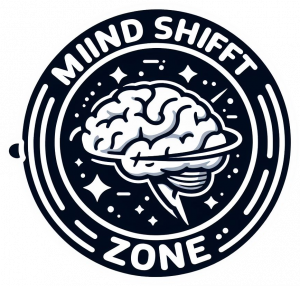These days, for small or medium-sized business, to find staff is easier than ever. With massive online job portals, recruitment agencies and an abundance of available hiring guidance to choose from, you’d think that hiring is an easy decision.
However, despite being armed with more resources than ever, many businesses still struggle to find staff when they hire new employees. More job market access does not necessarily equal better hires.
So how can your company find great talent? We give you four easy steps to go through to find staff for your business.
Bad hires are like landmines
A few years ago, the Society for Human Resource Management (SHRM) put out a report where they analysed human resource management in over 2,000 companies. The findings suggest that companies spend on average, $4,129 on each new hire. That’s enough to have consequences for your business cash flow and other financial key performance indicators in your business. The costs go to recruitment, human resources, time, orientation and training.
The cost of a bad hire is significant. That’s why it’s so important to find staff that’s right for the role and right for the business.
There are non-financial problems that arise from bad hires, too. For one, the wrong person might impact your company’s workplace culture and employee morale. Second, it takes an average of 42 days for a company to fill an open position (based on the same SHRM report). Those 40+ days will be a real test of your time management skills as you’ll have to divert company resources, backfill responsibilities and cover duties usually performed when that position isn’t vacant.
There’s no question; you’d rather operate at full capacity and hire the best talent to elevate your company to the next level. Keep reading if you want to find out how!
How do you find staff that’s right for your business?
Luckily, by utilising the abundance of resources available to you, there are some easy ways that you can avoid the mistakes of a bad hire. The following four steps are based on some of our favourite advice for small and medium-sized companies to find staff and the best talent matches possible.
Along the way, we’ll also consider how a professional career coach can help your business define and maximise your human resource strategy when making hiring decisions.
1. It all starts with a job description
This one might seem obvious, but you’d be amazed at how many companies send out a vague requirement to a recruitment agency and hope for the best.
Instead, you need to develop a thorough job description that’s specific, engaging and well-thought-out. There are lots of great templates you can find online by doing a simple search. Just be sure not to leave too many gaps!
Think of it from the job seeker’s perspective: when a top talent candidate browses a job board, they completely skim over vague or non-complete job descriptions. To encourage them to click on your ad and ultimately apply, be sure to have a complete explanation of the duties, responsibilities, the experience required and more. Keep it short and to the point so that it’s easy to read. And don’t forget to include images.
If you’re lost when it comes to being able to describe the position to someone outside your organisation, consider the help that a career coach can offer. They have lots of accessible knowledge about career trends how to narrow down your description of the position and ultimately articulate it in a way that engages and attracts the right candidates.
2. Think of your own needs
When you’re desparate it can be easy to think “we’ll take whatever help we can get!”
However, that’s a dangerous mindset because it can encourage bad hiring decisions. You don’t just want someone; you want the best someone. But how do you define that person?
Well, that’s your job to do! Start by thinking of your business needs and preferences, business coaching can help you identify these. Who is your ideal candidate? Make a mock-up profile of your perfect employee for the position you want to fill. Do you want an individualist thinker who can work independently or someone who thrives while under constant supervision?
Do you want someone outgoing, who can shine in a social or networking environment, or do you prefer a quiet, thoughtful type of person who you can rely on to get the job done behind the scenes?
You won’t necessarily find the answer to these questions while you’re scouring through resumes so you should prepare your profile first. During the interview, try to get a better understanding of the strengths and weaknesses of the candidate. Assess how these fit with your profile.
A career coach can be a valuable resource to help you identify your current needs, define the skill gaps in your organisation and help you figure out the exact type of person that suits your description.
3. Look high and low
By now, you’ve got a great job description, an advertisement and a profile of your ideal candidate. Here are a few places that you can expand your search for your new hire:
Online job portals. These are powerful tools that can connect you with thousands of great matches for your vacancies. Websites like Indeed are popular and have new applicants daily.
Social media. You can do your own recruiting by using your social media channels and requesting applicants for your exciting new opportunity. LinkedIn is one of the top career-related social platforms out there.
Referrals. At times, friends, family or colleagues will suggest candidates to you. While it can be exciting to do a friend a favour, be sure to assess the recommended candidate still and do a proper interview.
4. Sell the position
You have to put together an attractive recruitment package if you want to hire the best talent. Job seekers have to weigh all the options before they take their next step.
You might understand how amazing your company is to work for, but others might not.
You might not be able to compete with the large companies when it comes to benefits like on-site fitness centres or a swanky penthouse office location. Instead, focus on your strengths – what can you offer the right candidate? Maybe it’s the health and dental benefits or lifestyle and fitness allowances. Perhaps you can offer them a higher level of involvement or responsibilities at your company to help them advance their careers. Or, they might prefer some flexibility to leave work early to pick their kids up at daycare or to go travelling.
Any little bit that contributes to your recruitment package can give the right candidate the incentive they need to choose you over your competitors.
Hiring for success
Finding staff can be a challenge. With the help of a career coach and the right tools and resources, you can improve your hiring habits and avoid the costly mistake of a bad hire.
There’s just one last step that can set you apart in a candidate’s hiring decision – consider their needs.
Try asking your candidate what they look for in their careers. Ask them about their goals and offer suggestions about how you can help them achieve those goals. Showing interest in a candidate is a personable way to set yourself apart and improve your chances of attracting the best employees for your business.











